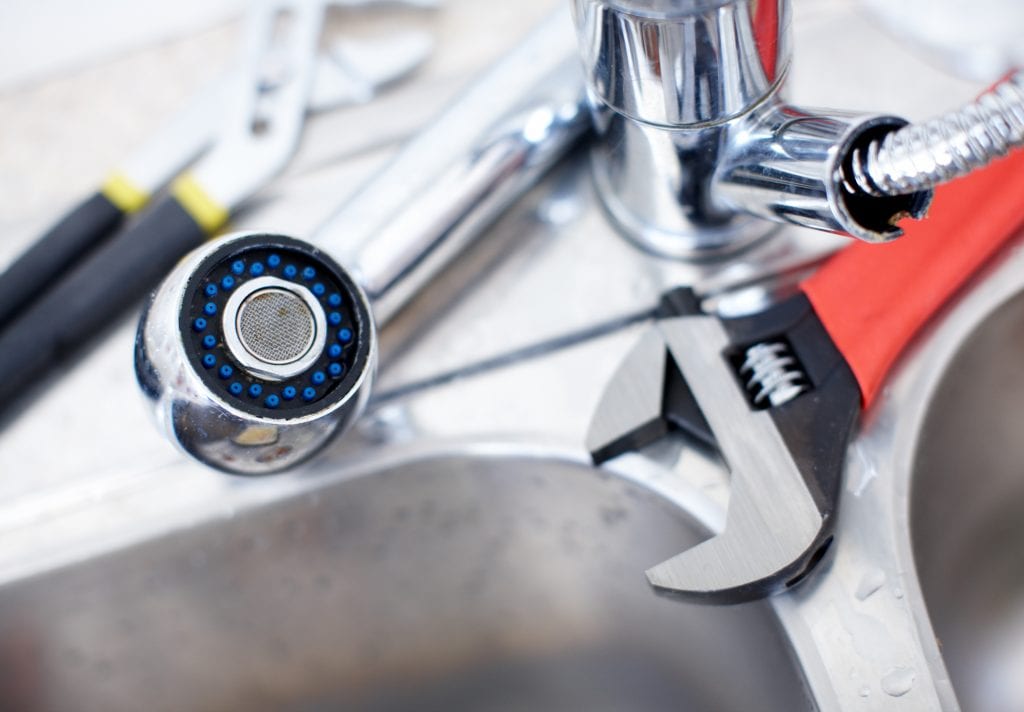Preventing Plumbing Problems
Thursday, March 6th, 2014
While it is virtually impossible to prevent all plumbing problems that can possibly come about, a great many of them can be avoided by taking adequate care and precautions. By adhering to the following advice, you can make life much easier for yourself by negating the need for having unnecessary plumbing services while saving yourself quite a bit of money and inconvenience.

Preventing Plumbing Problems
Usually when confronted with a dripping or leaky tap, a person’s initial response is to attempt to close it as tightly as physically possible. Unfortunately, this rarely works and, in many cases, causes a lot more harm than good. Applying too much force when closing a tap’s valve can force it into a position that it was not designed for, which damages the tap itself, making the problem worse. If your taps are indeed dripping or leaking, it is recommended that you seek out assistance from a professional plumber instead of going down the ‘do it yourself’ route or simply ignoring the problem. When left unchecked, small leaks and drips can become progressively worse until you have a rather serious complication on your hands. It is best practice to fix problems when they are small and have inexpensive solutions instead of waiting until a bigger and more expensive problem emerges.
Don’t Use Shower Head Racks
Much like taps, shower heads do not respond well to having excess pressure applied to them. That is why the use of shower head racks is not recommended. Their weight puts additional strain on the shower head and can, over time, cause it to begin to separate from the wall. This can result in leaks occurring. These leaks will need to be fixed, which is a lot more expensive (not to mention time-consuming) than simply fastening a form of storage rack to your shower wall.
How to Stop Your Shower’s Drains From Clogging
The purpose of a shower is to remove and dispose of dirt. As such, it is to be expected that this dirt can, over time, result in blockages in your shower’s drain. The most likely thing to block up your shower’s drain is, however, hair. People tend to shed hair while showering and this can then accumulate into clumps which will stop water from passing through the drain. It is fairly easy to tell when your drain is starting to clog as water will not drain away as quickly as it used to and will start to fill up your shower tray as you wash.
One simple method of preventing your shower’s drain from becoming blocked is to install a filter on top of your shower’s draining hole. You can purchase such a filter in just about any hardware store and they are fairly cheap to buy. Despite being fairly simple in design and execution, a shower drain filter is a very efficient installation. It will prevent hair and all but the finest dirt from making its way into your drainage system while allowing water to pass through unimpeded, preventing your shower tray from filling up with water.
Another worthwhile consideration to take on board in relation to all forms of drainage is that of drain cleaning products. While they most certainly can be useful when dealing with small blockages, you should bear in mind how they work. The corrosive elements found in drain cleaning unblocking eat away at the blockage until such time that it breaks apart and gets swept away. This is why you should be careful and only use such drain unblocking products and only use them sparingly. If you use them too often or in too large a quantity they may begin to around your actual piping, which is very bad news indeed. When you consider the inherent risks of piping damage associated with drain unblocking chemicals and take into account the fact that they are expensive to buy as well as environmental factors (they are extremely bad for the environment), they do not come across as being a particularly sound investment.
Don’t Use Your Toilet For Rubbish
A blocked up toilet is a serious pain that can cause untold amounts of disruption in any home. You should really be doing everything in your power to ensure that such blockages do not occur. The interesting thing about blocked toilets is that, in the vast majority of cases, the problem could have easily been avoided had people not attempted to flush non-flushable items down their toilet.
Far and away the most commonly encountered source of toilet blockages is kitchen roll and industrial strength blue roll being flushed. While these roll based sheets are very similar in terms of appearance to toilet roll and tissue paper (both of which are perfectly flushable), they are designed to be much stronger and a lot more difficult to break down. Where tissues and toilet paper dissolve in water for ease of flushing, blue roll and kitchen roll do not. Instead, they tend to ‘clump’ and accumulate, getting stuck in piping when flushed.
While blue roll and kitchen paper is the most common source of blocked toilets, they are far from the only thing people carelessly try to flush away. DeWAR Plumbers have encountered some very strange items in toilet piping down through the years.
Sinks Are Not For Waste Disposal
Much like the aforementioned toilet, sinks are also commonly mistaken for bins. The most common reason behind blocked sink piping is leftover foodstuffs from cooking and food preparation. While the sink based ‘garbage disposal system’ is commonplace in America, sinks in Ireland are not designed to dispose of solids and can become blocked quite easily, resulting in plumbing works needing to be done. Liquids should only ever be poured down the drain of a sink. Solid items should be appropriately disposed of by putting them in a bin or, if appropriate, used in a compost pile.
If you have taken heed of all the advice in this article, but are still experiencing problems with your plumbing then it may be time to call in a professional plumber to sort the issue out.
Call DeWAR Plumbers on our phone number 01 514 3344 or email us in order to have a plumber sent out to you at a time and date that suits you.
Share this post:
on Facebook
Deprecated: File Theme without comments.php is
deprecated since version 3.0.0 with no alternative available. Please include a comments.php template in your theme. in
/var/www/vhosts/dewarplumbers.ie/httpdocs/wp-includes/functions.php on line
6085



